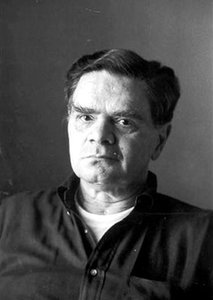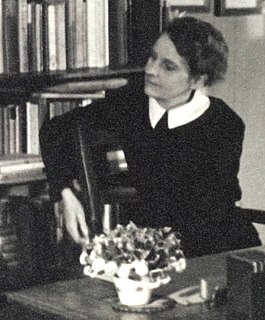A Quote by James Schuyler
It seems to me that readers sometimes make the genesis of a poem more mysterious than it is (by that I perhaps mean, think of it as something outside their own experience).
Related Quotes
It seems to me that the desire to make art produces an ongoing experience of longing, a restlessness sometimes, but not inevitably, played out romantically, or sexually. Always there seems something ahead, the next poem or story, visible, at least, apprehensible, but unreachable. To perceive it at all is to be haunted by it; some sound, some tone, becomes a torment — the poem embodying that sound seems to exist somewhere already finished. It’s like a lighthouse, except that, as one swims towards it, it backs away.
The subject of the poem usually dictates the rhythm or the rhyme and its form. Sometimes, when you finish the poem and you think the poem is finished, the poem says, "You're not finished with me yet," and you have to go back and revise, and you may have another poem altogether. It has its own life to live.
I know that in a poem, even when the speaker is speaking from the poet's experience, there's always something that's borrowed, some authority that sits outside of the poet that the poem has claimed. There's a dramatic pitch that makes the speaker capable of saying something more courageous or stranger or simply other than what the poet would be able to say.
Sometimes I see my students, especially the ones with a gift for the lyrical, reaching far outside the realm of their own experience for language and images. I understand this impulse. We think, in the beginning, that striking exotic words together will create something entirely new. That we must be worldly in our vocabulary. We idolize the styles of other writers and don't trust or perhaps yet know our own.
I'm fortunate enough that every job I do seems to be, at the very least, teaching me something fantastic. I make new friends. I work with talented people. And each project and experience seems to be better than the last. I seem to be topping myself all the time. I think to myself: "It can't get better, it can't get better..." And then something happens that makes me feel like I'm truly richer for the experience.
Sometimes they threaten you with something - something you can't stand up to, can't even think about. And then you say, Don't do it to me, do it to somebody else, do it to So-and-so. And perhaps you might pretend, afterwards, that it was only a trick and that you just said it to make them stop and didn't mean it. But that isn't true. At the time when it happens you do mean it. You think there's no other way of saving yourself, and you're quite ready to save yourself that way. You WANT it to happen to the other person. You don't give a damn what they suffer. All you care is yourself.
What else can I tell you? It seems to me that everything has its proper emphasis; and finally I want to add just one more bit of advice: to keep growing, silently and earnestly, through your whole development; you couldn't disturb it any more violently than by looking outside and waiting for outside answers to questions that only your innermost feeling, in your quietest hour, can perhaps answer.
There's something immediate about the experience of reading a poem - whether it's the music or some other element of it - that just seems to access another part of the brain. You know, Charles Olson talks about this transfer of energy that happens between the writer and the reader of the poem. I guess there's something essential to me about acknowledging upfront the immensity of it - the difficulty of it - and even allowing that to be the subject.





































